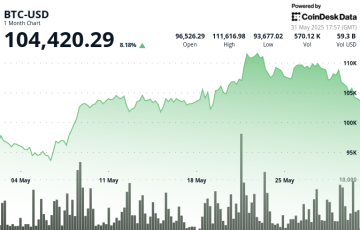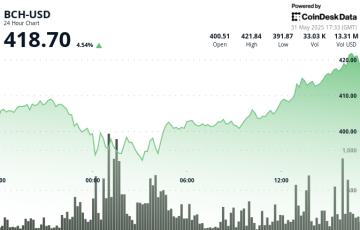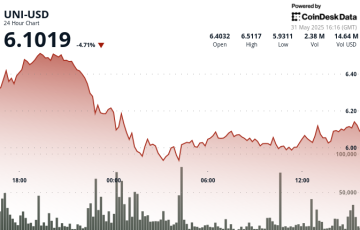Canadians have expressed concern over privacy and the safety of their personal data, a recent survey by financial company Interac has found. The majority of people polled believe their data is increasingly exposed and feel that this is a threat to their privacy. The survey was published during Canada’s Data Privacy Week in January. The theme of the week was ‘Take Back Control of Your Data’, but the survey revealed that people felt they had, in fact, lost control of it.
The figures in Interac’s survey revealed that nearly eight in ten Canadians (77%) said they believed their data was more exposed than previously, and 72% said they felt companies have access to too much of their data. Only 40% felt confident that they were able to keep their online personal data safe, and 80% wanted more of a say over how their online data is used and shared.
Colette Stewart, Managing Counsel and Enterprise Privacy Lead at Interac, said,
“Consumers are increasingly concerned about the privacy and security of their personal data and are dissatisfied with the status quo. Our survey results underscore the opportunity to build Canadians’ confidence by simplifying the consent process for when, where, and how frequently they share their data – and subsequently, the role organizations play in meeting these needs and expectations.”
Almost 90% of Canadians felt that they should be able to decide when an organization deletes their personal information and that they should be able to instruct the company to do so. 59% said that they do not know what they are consenting to when it comes to data sharing, as privacy agreements are hidden in general terms and conditions. 65% of them said the language that is used is too vague.
Interac and other fintechs have tried to overcome many concerns about online financial data safety by minimizing the amount of data a third party requires to process a transaction. For example, if a customer is buying a pair of shoes online, they may opt for PayPal, which only needs them to supply their email address, or for digital products like music or movies, they could use their ApplePay wallet. Those who like to have a flutter often search out online casinos that accept Interac, as they can make deposits and withdrawals without revealing personal financial information. However, most Canadians want the government to do more when it comes to online data privacy.
Quebec was the first provincial government to attempt to tackle the issue head-on with the introduction of Law 25 or the Act to modernize legislative provisions regarding the protection of personal information. It strengthens data protection rights for citizens and imposes new responsibilities on companies and organizations that process personal information. It aligns Quebec’s existing data privacy laws with more stringent global ones like the European Union’s General Data Protection Regulation (GDPR).
The bottom line is that user consent is enhanced, and organizations cannot just assume consent before collecting, using, or disclosing a user’s information. The business has to say how they collect the data, what it will be used for, and how it is stored. Consent can no longer be hidden within general terms and conditions and customers have to opt-in for their data to be collected and stored. It also comes with more robust enforcement mechanisms, and there will be significant penalties for non-compliance. Companies have to notify people and any relevant authorities if there has been a data breach that could cause serious harm.
While Law 25 only applies to Quebec’s citizens, any business trading there has to comply even if they only have one customer in the province. Data privacy is legislated for at a provincial level, but as Quebec moves to align itself with markets, other provinces will likely introduce similar legislation. This is particularly true in light of Interac’s survey and pressure from citizens in this area.
The Federal government is preparing to introduce legislation on open banking and Canadians are interested to know what measures will be put in place to keep their data safe. The survey cited showed that 65% felt open banking would give them more control of their financial data. 54% found the ability to securely access and share their financial information appealing, and 60% felt it would protect them from risky practices like screen scraping. 47% said the ability to revoke consent and stop their data from being used whenever they chose would enhance their confidence in open banking use.
Kashmera Self, Vice President of Strategy and Innovation at Interac, stated
“As Canada moves to provide consumers with greater control over financial data via consumer-driven banking, its adoption and utility hinges on strong privacy, data protection and consumer trust”.
Other findings from the survey included:
- Concerns regarding connections – Smart home devices and Artificial Intelligence /AI chatbots have increased concerns about privacy and personal information. Over 90% of respondents were either very or slightly concerned about how smart devices collect their personal information. However, despite their concerns, most felt the benefits outweighed the risks.
- Lack of Trust – Consumers do not trust how companies handle the data they have agreed to share, and two-thirds believe their data and personal information are passed onto other organizations without their consent
- Lack of solutions – 70% felt that the protection measures available were insufficient to protect them or their data. The current solutions are not perceived to meet their expectations and needs, and they want better protection.
- No control – almost 60% reported that sharing their personal information to purchase in-store or online services made them feel uncomfortable and that they were asked to do this more than they thought necessary. This has led to half the population feeling they had ‘lost control’ of their personal data.
- Consumer protection around consent – 75% expect consumer measures to be in place, which means that giving consent once should not be a blanket opt-in to everything in the future. They want convenient consent options that allow them to take charge of the
- Consent expectations – Most Canadians expect specific consumer protection measures to be in place, such as providing consent each time their data is used instead of just a one-time consent. This underscores the need for convenient consent options that allow consumers to take charge of their data on an ongoing basis.
Whichever way you look at it, Canadians want better privacy protection, and it will be interesting to see what steps are taken to address these issues.
The post A Survey Finds That There Is A Decrease In Canadians’ Confidence In The Privacy Of Their Data appeared first on Finbold.




